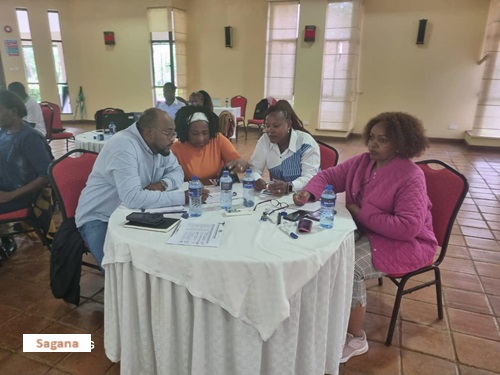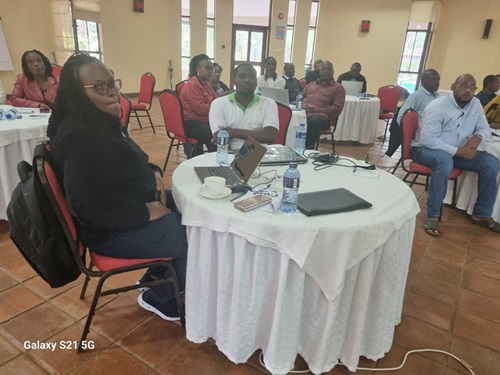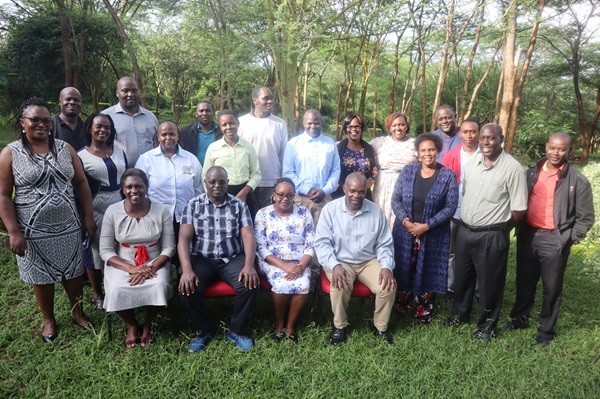SAGANA: 16th April 2024
In the rapidly evolving landscape of education and professional development, competency-based assessment has emerged as a cornerstone for ensuring skill mastery and meaningful progress.
Competency based assessment fundamentally shifts the focus from mere knowledge acquisition to the demonstration of practical skills and capabilities. It’s about what individuals can do, not just what they know. This paradigm recognizes that each learner is unique, with their own pace and learning trajectory.
Lead by the County Executive for Talent Skills Development and Care Rosemary Kariuki, the team was taken through an extensive training program which will help them train their students competitively.
 The County Executive said “Training in competency-based assessment equips educators and assessors with the tools to accurately measure and evaluate real-world competencies. By emphasizing observable behaviors and outcomes, this method provides a clear roadmap for learners to track their progress and for instructors to provide targeted, actionable feedback.”
The County Executive said “Training in competency-based assessment equips educators and assessors with the tools to accurately measure and evaluate real-world competencies. By emphasizing observable behaviors and outcomes, this method provides a clear roadmap for learners to track their progress and for instructors to provide targeted, actionable feedback.”
The county executive reiterated the need for all the principals and instructors to be trained in Competency Based Education and Training, embracing the new normal in education that is Competency based. She further said competency-based assessment training promotes equity and inclusivity. It minimizes subjectivity by defining specific performance standards and criteria, ensuring fairness and consistency in evaluation. This approach is particularly empowering for diverse learners, as it values a broad spectrum of skills and abilities beyond traditional academic measures.
The Chief Officer for ECDE & Vocational Training Ahmed Abdi said “ In today’s dynamic world, where the demands on education and training are constantly evolving, competency-based assessment stands out as a beacon of effectiveness and relevance. It bridges the gap between theory and practice between learning and application. It is a catalyst for innovation and growth, both in academia and in professional settings.”
 Nairobi City County is committed to fostering environments where every individual’s potential is recognized and cultivated. Imagine a classroom where students are not just studying for exams but actively engaging in tasks that prepare them for the challenges of their chosen field.
Nairobi City County is committed to fostering environments where every individual’s potential is recognized and cultivated. Imagine a classroom where students are not just studying for exams but actively engaging in tasks that prepare them for the challenges of their chosen field.
Ms. Kariuki said in the near future, Nairobi City County will adopt a system that employees are assessed on their ability to apply knowledge in real scenarios, fostering continuous improvement and adaptability. This is a key element in improving productivity, this approach is not just effective but transformative.”
Present during the four day training session was Chief Officer ECD and Vocational Training Ahmed Abdi, Deputy Director Vocational Education and Training, Leonard Mititi, Assistant Directors Vocational Education and Training, Mr. Kepha Nyamweya & Susan Kamau, Principals and instructors from Vocational Training Centers, among others.
End/…

